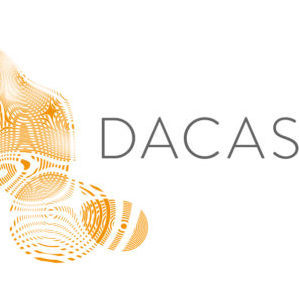Summer School: Understanding Urban Transformations through Data

An ESRC Strategic Network: Data and Cities as Complex Adaptive Systems (DACAS)
Organisers: Deljana Iossifova (University of Manchester), Ulysses Sengupta (Manchester Metropolitan University)
Dates: 12 – 16 September 2016
Location: Manchester School of Architecture, University of Manchester & Manchester Metropolitan University
Keynotes: Juval Portugali (Tel Aviv University), Denise Pumain (National Center for Scientific Research, CNRS), Piyushimita Thakuriah (University of Glasgow)
Speakers: Peter Allen (Cranfield University); Panagiotis Angeloudis (Imperial College London); Murilo da Silva Baptista (University of Aberdeen); Shidan Cheng (Wuhan University); Christopher Doll (United Nations University); Alexandros Gasparatos (University of Tokyo); Daniel Graham (Imperial College London); Deljana Iossifova (University of Manchester); Roberto Kraenkel (São Paulo State University); Jun Luo (Wuhan University); Nir Oren (University of Aberdeen); Ulysses Sengupta (Manchester Metropolitan University)
Application deadline: 24 July 2016, 23:59 (BST)
Notification of acceptance: 8 August 2016
Deadline for full papers: 14 October 2016
Understanding Urban Transformations through Data is an international summer school for PhD students and Early Career Researchers. It aims at improving our understanding of urban transformations through dynamic data analysis and modelling from a complexity perspective.
The week-long event will offer high profile keynotes, lectures and workshops. Participants will test different approaches to modelling hands-on using a complexity science framework. They will work with ‘hard’ and ‘soft’ datasets. ‘Hard’ refers to datasets describing spatial morphology, infrastructural provision, etc., as dynamic adaptive systems. ‘Soft’ refers to datasets describing social epidemiology, family structure, changing norms, personal narratives, etc., as dynamic evolutionary systems. Participants will focus on a number of selected case studies which will be explored using transdisciplinary methods:
• Air pollution as an emergent process
• The co-evolution of traditional (taxi) and ICT enabled (Uber) transport systems
• Resilience of interdependent urban infrastructure systems
• Proto-urban development on the periphery of a biofuel plantation in Mozambique
• Rapid urbanisation at a large scale in China
• Open Gov data for redevelopment in Manchester
At the heart of the summer school is transdisciplinary research and hence researchers are encouraged to apply from a variety of fields including, but not limited to cognitive sciences, game theory, urban planning, governance, human geography, economics, ecology, biology, engineering, computer science, anthropology, urban studies, public policy, urban sociology and environmental psychology.
Participants will ideally have some experience in data analysis, spatial systems modelling, social systems analysis, social network modelling, GIS modelling, machine learning, network analysis, syntactical analysis, computer programming, computational modelling, modelling transport systems, data visualisation, computer game development, agent based modelling, digital gamification or ICT tool development.
Understanding Urban Transformations through Data is the third of a series of events funded through the ESRC Strategic Network Data and Cities as Complex Adaptive Systems (DACAS). The aim of DACAS is to promote an interdisciplinary complexity science approach to the study of urban data and the links between soft and hard systems as the basis for the development of innovative technological applications. DACAS connects non-academic stakeholders from the public, private and third sectors and noted academics with backgrounds in various relevant disciplines in China, Brazil and the UK.
Applications: PhD and Early Career Researchers – regardless of their nationality, institutional affiliation or disciplinary background – are invited to apply for the DACAS summer school in Manchester. To apply, please visit https://easychair.org/conferences/?conf=dacas03. You will be asked to submit an abstract (300 words) and to provide a brief CV (up to two A4 pages, .pdf or .doc file).
Your abstract should outline how your disciplinary approach can contribute to a better understanding of complex urban transformation using data, analytic methods and dynamic models. You should also clearly state how your own research will be advantaged by your participation in a complexity science based transdisciplinary team of researchers and practitioners.
Participation is free of charge and competitive bursaries are available.
Bursaries: Highly competitive bursaries are available and will be awarded based on the quality of the application and commitment to write a short working paper of 4,000 words within one month of the event. Papers will be published on the DACAS website or may be selected for publication in an edited volume.
If you wish to apply for one of the bursaries, please indicate this by ticking the appropriate box during the online submission of your application:https://easychair.org/conferences/?conf=dacas03.
Further information: If you have any questions regarding this event, please email the project assistant, Ivana Tosheva (ivana.tosheva@postgrad.manchester.ac.uk), with DACAS Summer School in the subject field of your email.
Website: www.dacas.complexurban.com
